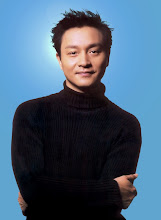
張國榮演賦予程蝶衣特殊的魅力
Chinese Media Net
December 30, 2006
Author: Jiang Xun
Source: Leslie Cheung Artist Studies http://www.leslie-cheung.com
Partial content extracted from Zhang Yihuo’s cultural trip to Singapore and Malaysia
Translated by Daydreamer on January 11, 2007
Zhang Yihuo, traveling south from Beijing, set foot on Singapore and Malaysia for the first time. In the decadent music, she chatted with her friends until 2 o’clock in the morning in the bar of the Raffles Hotel in Singapore. This 110 years old hotel used to be the meeting place for senior officials and writers. Zhang Yihuo captured the bygone times. In Malacca, Malaysia, she visited and spent four hours in the 100 years old two-story building in Holland Street, appreciating the antiques exhibited there with the He Kuojung couple. The past was like a dream. Zhang Yihuo has in recent years published “The Past was not Like a Dream (The Last Aristocrat)”, “A Blast of Wind, Leaves Behind the Eternal Last Song”, and the “The Bygones of Opera Actors - For Those Who Do Not Watch Operas” that was published most recently.
Zhang Yihuo writes about past events and about historical personages. She said, “When one gets old, what’s left in mind are “past events”. History, they are stories from the past. Stories, they are history. Now we talk about the stories of the past, and very soon, our predecessors will talk about us as a story.” She said that her motive force to write is “to converse with heaven", “because those who loved me and the ones I loved are all in heaven”, “the objects I describe are all dead”.
On the Christmas Eve, Zhang Yi Huo held a lecture in Singapore and in Malaysia on the“Stories Inside and Outside the Book”. She was invited to Singapore by He Lienfeng who established the “Lienfeng Lecture Courses” in the Singapore Management University. This lecture was organized by Singapore Management University along with the “Union Morning Newspaper”. She was invited to Malaysia by the Malaysian Chinese Association to speak at the lecture organized by the Malaysian Chinese Association and the “Sin Chew Daily”. Zhang Yihuo wrote an inscription for the Malaysian readers as follows: “Reading can teach us to use calmness to expel the unfortunate, to embrace life with smile and to approach truth with wisdom.” Her new book “The Bygones of Opera Actors – For Those Who Do Not Watch Operas” records the touching stories of seven opera actors, namely Shang Hsiaoyun, Yan Huizhu, Yang Paozhong, Ye Shenglan, Ye Shengch'ang, Xi Xiaobo and Cheng Yanch'iu. In those two lectures, Zhang Yihuo emphatically explained her new book, from opera actors to the fall of the traditional cultures and the disfavor of the classical literary arts.
Why did Zhang Yihuo write about Chinese opera actors? Opera actors and her expertise are interrelated. She has spent more than thirty years in learning the opera arias, researching on them, then teaching them. Within that timeframe, she spent ten years in prison. She knows the stories of the opera actors, and she hopes that other people may know them too. The opera actors on stage tell the stories of other people, and Zhang Yihuo wants to tell the stories of the opera actors. Zhang Yihuo wishes to tell those people who do not understand the opera actors and to show those who do not watch them. The art of the opera actors is beautiful and beauty needs to be appreciated. Actually, those individuals should also be appreciated too because life is also beautiful.
She said, "Chinese entertainers possess utmost charm, no less than those movie stars in Hollywood. In Chen Kaige's movie "Farewell To My Concubine" there is a very outstanding actor Zhang Guorong. The role of Cheng Deiyi that he played is most unforgettable. Probably everyone agrees that his performing skill in the movie is the best. Zhang Guorong played an actor, a Peking opera actor, more specifically, a male dan (see note 1). He put on a performance of a male dan’s habitual behavior, eye expression, life of emotion and charm. The actress of this movie is Gong Li, yet if putting Gong Li and Zhang Guorong together, let me speak frankly, inside the movie she is like a total tawpie (a little fool). Not that Gong Li is silly, but just that the male dan role that Zhang Guorong played has given him distinctive charm."
Note 1: Dan is the general term in Peking Opera for female roles. The art of male dan--specialists in female roles--is one of the most important issues in traditional Chinese theatre, especially in jingju (Beijing or Peking opera).


No comments:
Post a Comment